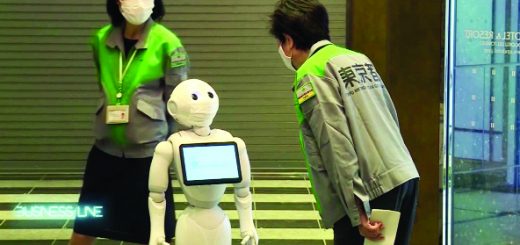Some champions of charity in pandemic period -Abu Muaj and Ifrith Islam
The list of philanthropists is made on the basis of the information provided by the philanthropists or their agents or organisations. But at the corporate level, companies do some philanthropic work which is called corporate social responsibility, better known as CSR. For this CSR the corporates earmark most of the fund designated for charity works for media coverage. And in exchange for the CSR activities, the companies get some benefits like tax waivers from governments across the world. So it can be said that there are some good and bad charitable works. A good philanthropist doesn’t seek any return for his or her charitable work but a bad philanthropist seeks media coverage in return for his or her charitable works. A good donor is media-shy when a bad donor is hell-bent on getting media coverage.
But sometimes some good individual philanthropists hit the news headlines though they are highly unwilling. So here is the difference between the corporates who spend a lion share of their CSR funds for coverage in print, electronic and online media and even in social media.
Obviously most of the charity works among the near and dear ones and the neighbours go unreported.
The exact meaning of charity maintains some rules, i.e. laws. Commoners are not aware of those laws but despite everything they do follow these laws unwittingly.
What is charity? A youngster, who is very inquisitive, might ask his parents, though it’s an extremely common question.
In a city, children do charity sometimes as chances of socializing with the underprivileged children are slim. If a child has many toys, and got tired of playing with those may want to get rid of. And the child may end up giving away those old toys with the help of his parents. Sometimes, upon parent’s suggestions some children donate the toys to the needy children.
But in villages children get ample scope to socialize with others of their age. In rural areas these children the values of helping fellows and for this they don’t have to know the definition of charity. It is their parents or schoolteachers who teach them how to help the people in need. It is the cultural fabric of rural Bangladesh.
One has to be charitable enough to do charity. There are negative side effects or consequences of being charitable beyond one’s means that sometimes turn into trouble.
Charity does not mean all of the public affairs and media coverage. It mostly means everyone in his or her place and do humanitarian works, be it helping people with cancer or educating squatters in the streets.
Upskilling or even reskilling the people, who are trying to enhance their career or demonstrate the ability may be examples of charity. A deep level of commitment of a volunteer and acts performed as per the commitment give a sense of fulfillment at the end of a long day of working for disadvantaged people.
As part of starting charity works, a local volunteer can give something back to his community like assisting sick people in getting hospitals or finding a doctor, giving shelter to shelterless people or coordinating with fundraisers in your locality.
We have cherry-picked some great souls, whose charity works hit the news headlines.
One of the brave hearts is an Indian. He is an auto-rickshaw driver by profession. Muhammad Javed Khan is his name. Poor Javed transformed his three-wheeled vehicle into a small ambulance by retrofitting an oxygen cylinder to help Covid-19 patients amid a huge oxygen crisis. His three-wheeled ambulance is a great help to the poor or who are not able afford an ambulance, he knew he had to help.
When he converted his auto-rickshaw, he, himself, could not afford the payment for the transformation, he had to sell his wife’s jewellery to add oximeter to measure oxygen levels in the blood and other medical equipment in his three-wheeler.
Pakistan’s Edhi Foundation in early stages of Covid-19 onslaught offered to send 50 ambulances to India when none in the world extended the help. The Edhi Foundation, a charity organization from arch-rival country Pakistan, was lauded by many Indians, is renowned for its humanitarian relief works in their country of origin.
The councilor of Ward 13 in Naranyanganj City Corporation (NCC) has been arranging the last rites of anyone dying from Covid-19, irrespective of their religion, cast or society when their families faced trouble over funeral. Even Hindu families abandoned their family member, who died of coronavirus, was cremated by people’s representative.
And the man who deserves all the credit is Maksudul Alam Khandakar Khorshed, councilor of Ward 13, Narayanganj City Corporation. He is a selfless hero.
Globally renowned celebrities also carry out charitable work. For example: Ex-wife of Amazon founder Jeff Bezos MacKenzie Scott who is one of the world’s wealthiest women recently announced a large charitable donation totaling $2.7 billion for educational, community and other nonprofit organizations which are historically underfunded and overlooked.
Legendary Indian cricketer Sachin Tendulkar donated one crore rupee to procure oxygen concentrators for Covid-19 patients when India was struggling to provide oxygen. Superstar of Bollywood Amitabh Bacchan also donated two crore rupee to a Covid-19 facility in Delhi.
Bangladeshi cricketer and world’s one of the best all-rounder Shakib Al Hasan launched a foundation named “The Shakib Al Hasan Foundation” for rendering his support in the battle against coronavirus.
An act of charity in an unstable time can yield long-term social stability and security. Non-profit organisations that provide salaries are likely to be doomed and cannot even think of expanding their organisation.
If anyone wishes to do charity work in order to change their careers they would have to face many complications such as meeting the targets is difficult, may face high stress, time consumption is larger and the transition from unpaid/voluntary to paid work is hard.
The frustrating difficulties are mainly created while meeting the realistic targets. Charity work involves short bursts of activity and a lot of planning and in this way it is difficult to organise the time in long term.
One of the most stressful part involves fundraising and crowdfunding is often a cumbersome job. Collecting small donations and resources from a cross-section of people requires a lot of convincing power.
This stress is magnified by working in a small team or where the expected work was not allotted due to various reasons.
Charity works take up a lot of time. Even if the work is rewarding, it can be hard to do. While doing a better work for everyone, one can feel that he/she is neglecting his/her family and friends.
Building up experiences and sometimes luck on the side can provide great help. Some people excel in charity works when some don’t. People who have proven fundraising capacity do very well in extending help for many people. But sometimes volunteers fail to create big crowdfunding and end up helping a small number of poor people. And experience stress for cuts in funds. Due to tight resources, the charity funds are reduced first and it is true both peer-to-peer charity or government-to-person charity services.
For charity works, one requires to be human, sensible, empathetic or at least sympathetic to the problem of fellows, be they poor or rich. Now the question may arise ‘why the rich or people of higher echelons need charity’. Do high-end people any help as they have almost every resources and money they need. But sometimes they some advice or consultancy or religious sermon or some good words in the time of spiritual or mental crisis. As rich people don’t count or honour religious sermons from the low-end religious scholars, so persons like Shah Abdul Hannan are the answer. A retired secretary to the Bangladesh government, Shah Abdul Hannan was a man of high-end society and simultaneously a preacher of Islam. He was an ideal embodiment of both Islamic qualities and high official of the government.
He was deputy governor of the Bangladesh Bank. He was Director General of the Anti-Corruption Commission moving on to become Deputy Governor of Bangladesh Bank [93-94], Banking Secretary in the Ministry of Finance [94-95], Chairman NBR [96-97], Secretary Social Welfare [95-. He retired from the service to become Chairman of Islami Bank Bangladesh Ltd, the largest and one of the most successful private commercial banks in the country. He was also Chairman of the Ibn Sina Foundation. People of the richer section of the society used to feel convenient to seek his suggestions in trying times. He used to preach Islam among the elites, bureaucrats, high officials of the government and among talented students of top-ranking universities of Bangladesh. As he was a role model of a real Muslim, upper-class people didn’t hesitate to socialise with him. He established many institutions including two organisations — The Pioneer for males and The Witness for females. The members of these groups always aspire to combine knowledge of both here and hereafter. Their efforts were always invested to be well-conversant in English and Arabic. His act of bailing people of high social status out of their socio-religious crisis was an act of charity. His words for his followers were a charity. His words of inspiration were also charity at a time when those troubled people hardly find anyone of this stature to guide, soothe and save. He was green, honest, smart, presentable, visionary and a down-to-earth personality. n
















Recent Comments